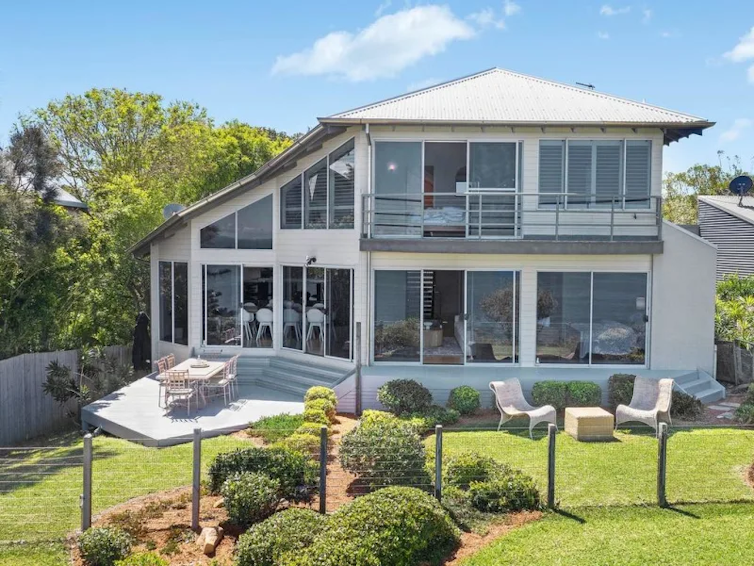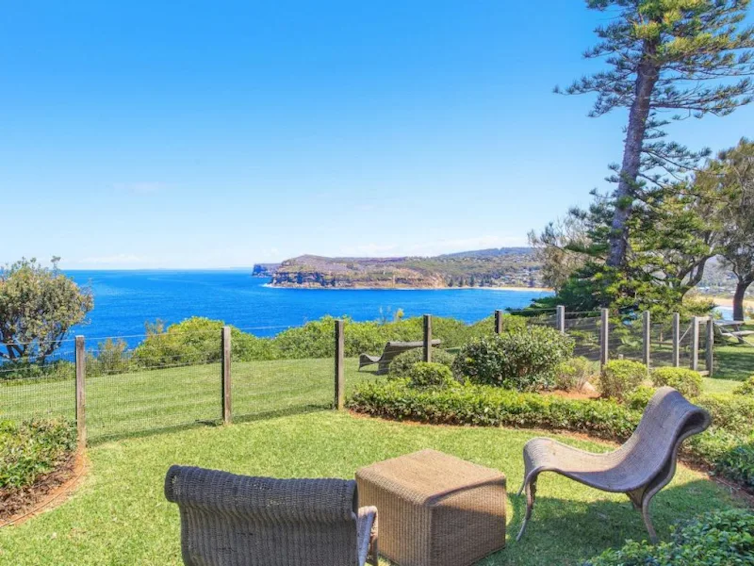Unless the government pulls up its political socks, Anthony Albanese could find himself spending a good deal of time in his spectacular new home, with its uninterrupted ocean views, sooner than he wishes.
This week’s Newspoll has the Coalition moving in front on a two-party basis for the first time, with Labor’s primary vote at 31%.
Albanese would hope for another full term as prime minister. But if Labor fell into minority government at next year’s election, there would likely be pressure before too long to replace him. He would not be seen as a good bet for the 2028 election.
If Peter Dutton pulled off a miracle win in a few months, Albanese could be regularly whale watching this time next year.
Since the PM’s purchase of the $4.3 million house at the wonderfully-named Copacabana, was revealed on Tuesday, two narratives have contended.
Critics denounce Albanese as “tone deaf” in his timing during a housing affordability crisis.
It was more than awkward that just hours after the news broke, Albanese was appearing with minister Clare O'Neil in Queensland to make an announcement about housing.

The Copacabana house is a story made for that renter-in-perpetuity, Greens spokesman Max Chandler-Mather.
Dutton, who has bought and sold a few properties in his time, is careful with his words, knowing others will stir the outrage.
The alternative narrative is that Albanese, marrying for a second time next year, is entitled to a private life. This involves reordering his property arrangements ahead of a wedding.
Moreover, some observe, the criticism of him is the “politics of envy” or the “tall poppy syndrome”.
But there’s another narrative. Suddenly, Albanese’s story has become “all about him” again, as it regularly does when he reverts to talking about his humble origins.
Stressed voters could be forgiven for being impatient, or cynical about Albanese’s protestations this week that although he now has a good income, “I also know what it’s like to struggle”.
My mum lived in the one public housing that she was born in for all of her 65 years. And I know what it’s like, which is why I want to help all Australians into a home, whether it be public homes or private rentals or home ownership.
Unfairly or not, the house story will be read by some as a prime minister spending time on his own affairs.
Buying a house is a major and reasonably time-consuming process, unless it was outsourced it to partner, Jodie Haydon. The Central Coast was chosen because her family lives there.
The narrative can also be cast to look like Albanese is preparing for his post-political life while he is still the most important individual in politics.
Whether this is accurate becomes beside the point, in this era when perceptions can be paramount.

Unsurprisingly, he was asked whether he planned to retire at the house. “I’m planning to be in my current job for a very long period of time,” he said.
In mid-1991 Bob Hawke purchased a property overlooking Sydney Harbour with a jetty and “stunning views”, and a price tag of $1.23 million.
Hawke’s leadership was already on the decline – by year’s end he was replaced by Paul Keating.
Apart from the bad publicity for Albanese, the house affair has taken a good deal of attention from what the government wanted to talk about, notably, what it’s doing to protect consumers and the like.
It has meant his ministerial colleagues are forced to defend him when they are confronted with awkward questions.
Energy Minister Chris Bowen tried to make the best fist of it that he could, when quizzed during an interview.
“Every Australian is entitled to buy and sell property. Now Anthony cops it when he sells the property. He cops it when he provides a rent holiday to his tenants. He cops it when he buys a property,” he said.
“I think most average Australians say, fair enough. You know, this is what aspiration is about, most average Australians say, well, you know, we all buy and sell properties.”
When you are in the public eye it is not, however, such an ordinary story.
By the way, when Albanese goes to the G20 in Rio de Janeiro next month, he can get to see the real Copacabana.
Michelle Grattan does not work for, consult, own shares in or receive funding from any company or organisation that would benefit from this article, and has disclosed no relevant affiliations beyond their academic appointment.
This article was originally published on The Conversation. Read the original article.







